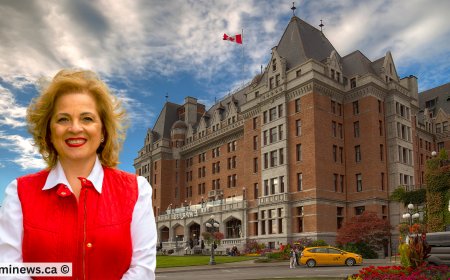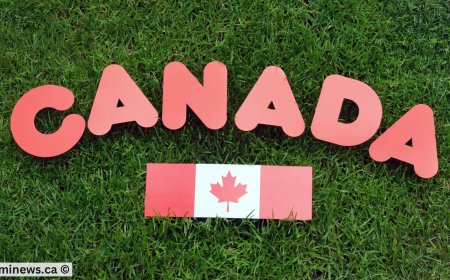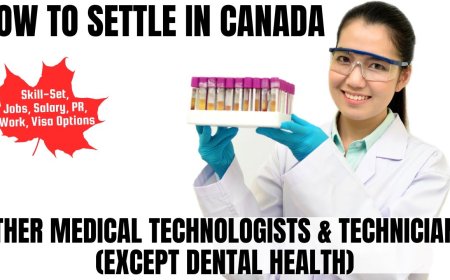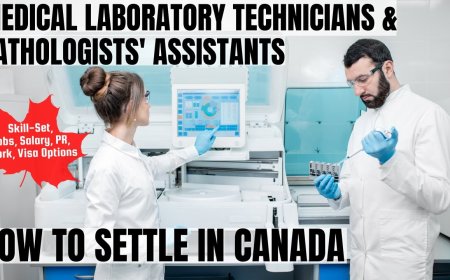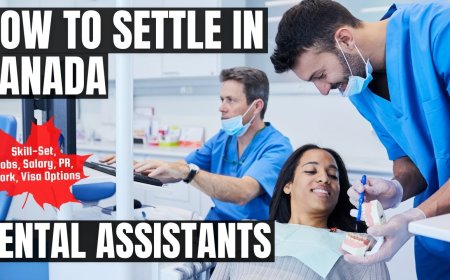Dental technologists, technicians and laboratory assistants Guide to Canada Immigration: Exploring Salaries, Job Duties, and Where to Live
Welcome to the pathway to Canada immigration for skilled professionals and trade workers. This guide is specifically tailored for Dental technologists, technicians and laboratory assistants looking to work and settle in Canada, offering a deep dive into the essential aspects of immigration and employment in this field.
Introduction
Canada is known for its excellent healthcare system, and dental care is no exception. In this article, we will be focusing on the career and immigration prospects for Dental technologists, technicians, and laboratory assistants in Canada. The National Occupation Classification code (NOC Code) for this profession is NOC 3223. We will cover the profile description, main job duties, education and license requirements, skills required, median age and retirements, salary details, and possible visa options for individuals looking to pursue a career in this field in Canada. Whether you are a local candidate or an international professional looking to immigrate to Canada, this article will provide you with valuable information about the opportunities available in this thriving industry.
What is the Profile Description of a Dental technologists, technicians and laboratory assistants as per the Canadian National Occupation Classification (NOC) Standards?
Dental technologists, technicians, and laboratory assistants work in dental laboratories where they design, prepare, and fabricate dentures and other dental devices according to the specifications provided by dentists and other dental professionals. Dental laboratory assistants support technologists and technicians in the creation of these devices. This group also includes supervisors who oversee the work of dental technologists and technicians.
What are the Main Job Duties of a Dental technologists, technicians and laboratory assistants in Canada?
- Design, fabricate, and repair a variety of dental devices including dentures, orthodontic appliances, crowns, bridges, inlays, onlays, and implants
- Prepare dental impressions, plaster models, wax bite-blocks, and impression trays for use in creating dental devices
- Cast metal alloys and pack plastic material in moulds to form dentures and other dental appliances
- Consult with dentists and specialists on complex dental cases and provide expertise in creating solutions
- Train and supervise other dental technicians and laboratory assistants in dental device fabrication, as well as perform administrative tasks for the dental laboratory
What are the Education, Certifications, and Licensing Requirements to Work as Dental technologists, technicians and laboratory assistants in Canada?
In order to pursue a career as a Dental technologist, technician, or laboratory assistant, individuals must meet certain education and certification requirements. This includes completing a college program in dental technology or gaining four or more years of on-the-job training under the guidance of a registered dental technologist or technician. Additionally, registration with a regulatory body is necessary for dental technologists and technicians in all provinces except Manitoba and the territories. For Dental laboratory assistants, a secondary school diploma is typically required, along with up to two years of on-the-job training to gain the necessary skills and experience in the field.
What Essential Skills are Required for Dental technologists, technicians and laboratory assistants to succeed in Canada?
Dental technologists, technicians, and laboratory assistants must possess a variety of essential skills to be successful in their profession. These include the ability to prepare plaster models and moulds, cast gold or metal alloys for bridges and denture bases, mould wax over dentures set-up, finish metal framework of dentures, prepare wax bite-blocks and impression trays, pack plastic material in moulds to form full or partial dentures, make orthodontic bands from metal and alloys, polish and buff dentures, and design, fabricate, or repair dental devices. In addition to technical skills, a strong attention to detail, manual dexterity, artistic ability, and the ability to work effectively as part of a team are also essential in this field. By combining these skills, dental technologists, technicians, and laboratory assistants can provide high-quality dental devices and ultimately contribute to improved oral health for patients.
What is the Median Age and Retirement Age for Dental technologists, technicians and laboratory assistants in Canada?
The skilled professionals working as Dental technologists, technicians, and laboratory assistants have a median age of 39.0 years old. This suggests that many individuals in this field are still in the middle of their careers and have several years of experience under their belts. The average retirement age for these professionals is 62.0, indicating that they typically continue working for a significant amount of time before retiring. This data showcases the dedication and commitment of Dental technologists, technicians, and laboratory assistants to their profession and their willingness to continue contributing to the field for many years.
How many job openings exist for Other Dental technologists, technicians and laboratory assistants in Canada, and what's their provincial distribution?
There are a total of 52 job openings for the profile of Dental technologists, technicians, and laboratory assistants in Canada. The province with the highest number of job openings is Alberta with 15 positions available, followed closely by British Columbia and Ontario with 13 openings each. Quebec has 5 job openings, Manitoba has 3, Saskatchewan has 2, and Yukon has 1. Alberta, British Columbia, and Ontario have the highest number of job openings, while Yukon has the lowest number of job openings for this particular profile. Candidates looking for opportunities in this field may find the most options in Alberta, British Columbia, and Ontario.
What is the hourly wage or salary of Dental technologists, technicians and laboratory assistants in different Provinces of Canada?
According to wage data for Dental technologists, technicians, and laboratory assistants in Canada, there is variation in wages across provinces. In British Columbia, the wage for this profession ranges from a low of 15.20 to a high of 41.61, with a median wage of 23.60. Alberta also shows a significant range, with wages from 17.60 to 38.92, and a median wage of 25.81. In Manitoba, wages are slightly lower, with a range from 14.90 to 30.15 and a median wage of 19.23. Ontario falls in the middle with wages ranging from 16.50 to 35.00, and a median wage of 22.75. Quebec has lower wages compared to other provinces, with a range from 16.00 to 26.53 and a median wage of 22.00. Nova Scotia has the lowest wages in this profession, with wages ranging from 13.50 to 33.00 and a median wage of 20.00. Overall, wages for dental technologists, technicians, and laboratory assistants in Canada vary significantly by province.
What are the various visa options available for Dental technologists, technicians and laboratory assistants migrating to Canada?
Dental technologists, technicians and laboratory assistants are currently in high demand in Canada and are eligible for Category based Express Entry Invitation draws for Canadian PR under the Healthcare Occupations Category. Express Entry is a system used by the Canadian government to manage applications for permanent residence from skilled workers. Additionally, Dental technologists, technicians and laboratory assistants may also be eligible to apply through Provincial Nominee Programs, which allow provinces to nominate individuals for immigration based on their specific labor market needs. Employer Sponsored Work Visas are also an option for those in this profession, as employers in Canada may sponsor skilled workers to come and work for them. It is important to note that there may be other visa options currently open for Dental technologists, technicians and laboratory assistants as well. To learn more about these visa options and discuss your individual situation in detail, book an appointment with our professionals.
Have Questions or Need Assistance?
If you have any queries or require assistance with your immigration plans, we're here to help. Our experienced immigration consultants are ready to provide personalized guidance tailored to your specific needs.
Don't hesitate to reach out and schedule an appointment today. Whether you're seeking clarification on immigration processes, exploring visa options, or need support with documentation, we're dedicated to assisting you every step of the way.
Book an appointment with our team to discuss your immigration goals and receive expert guidance for your journey to Canada.
What's Your Reaction?
 Like
0
Like
0
 Dislike
0
Dislike
0
 Love
0
Love
0
 Funny
0
Funny
0
 Angry
0
Angry
0
 Sad
0
Sad
0
 Wow
0
Wow
0



